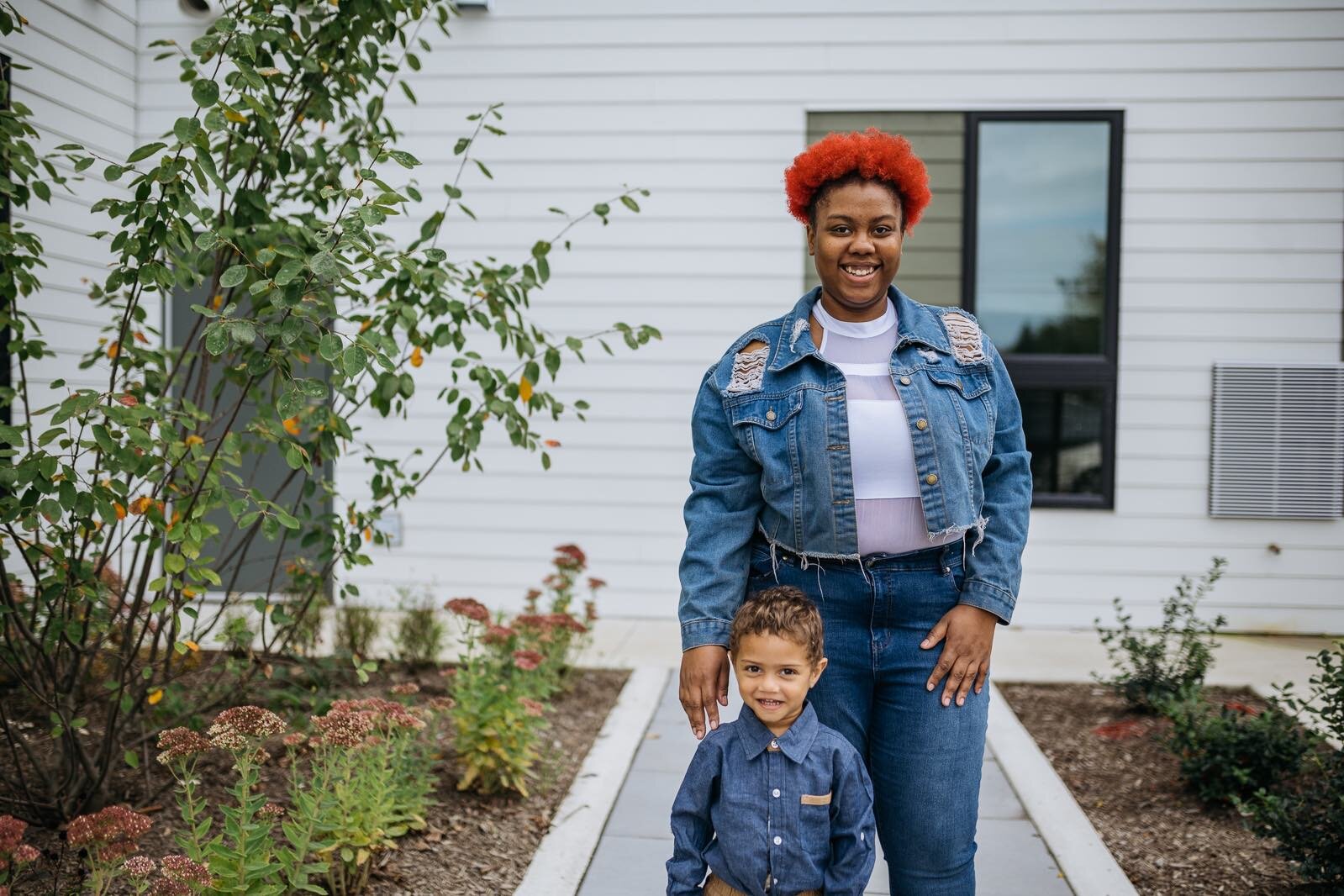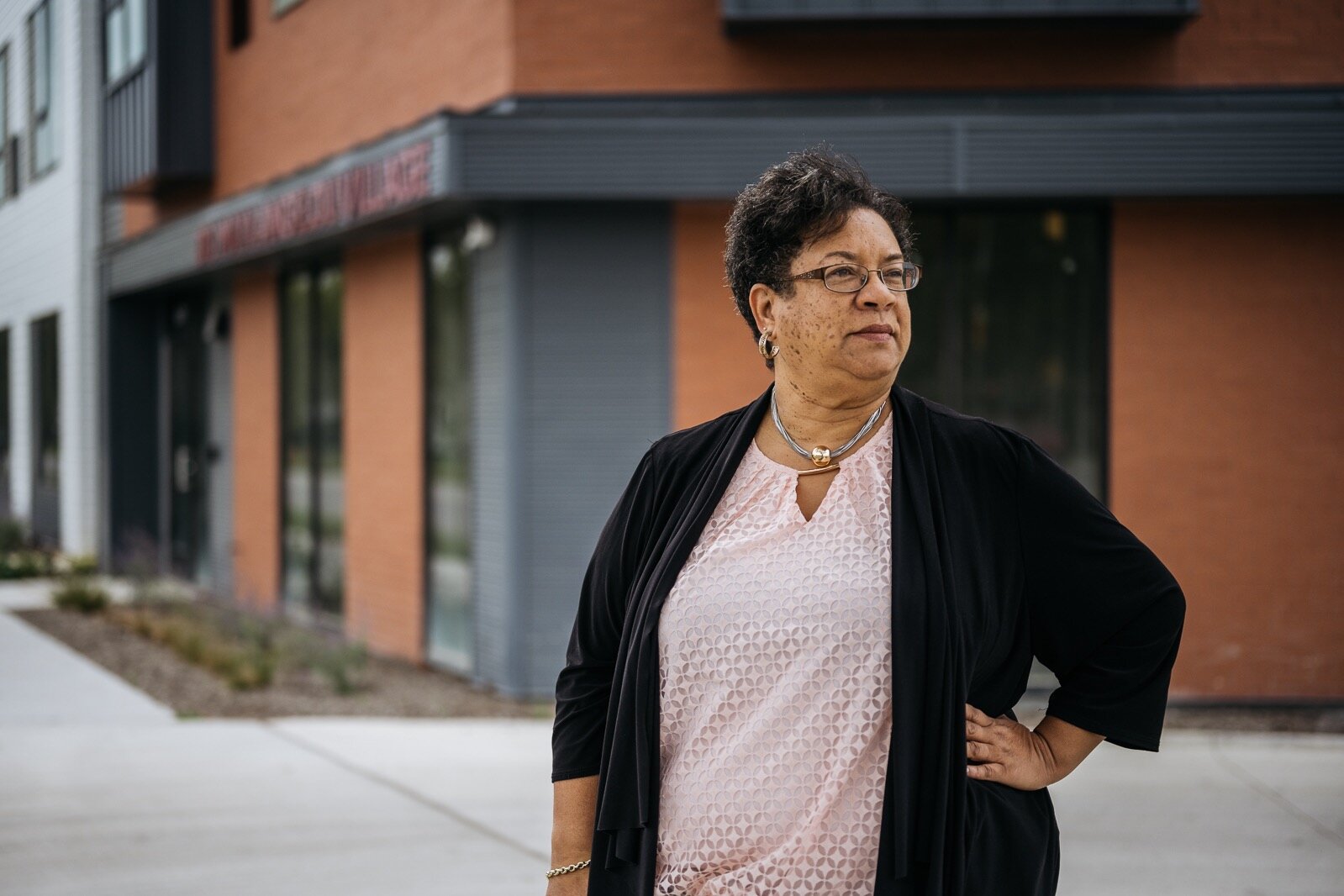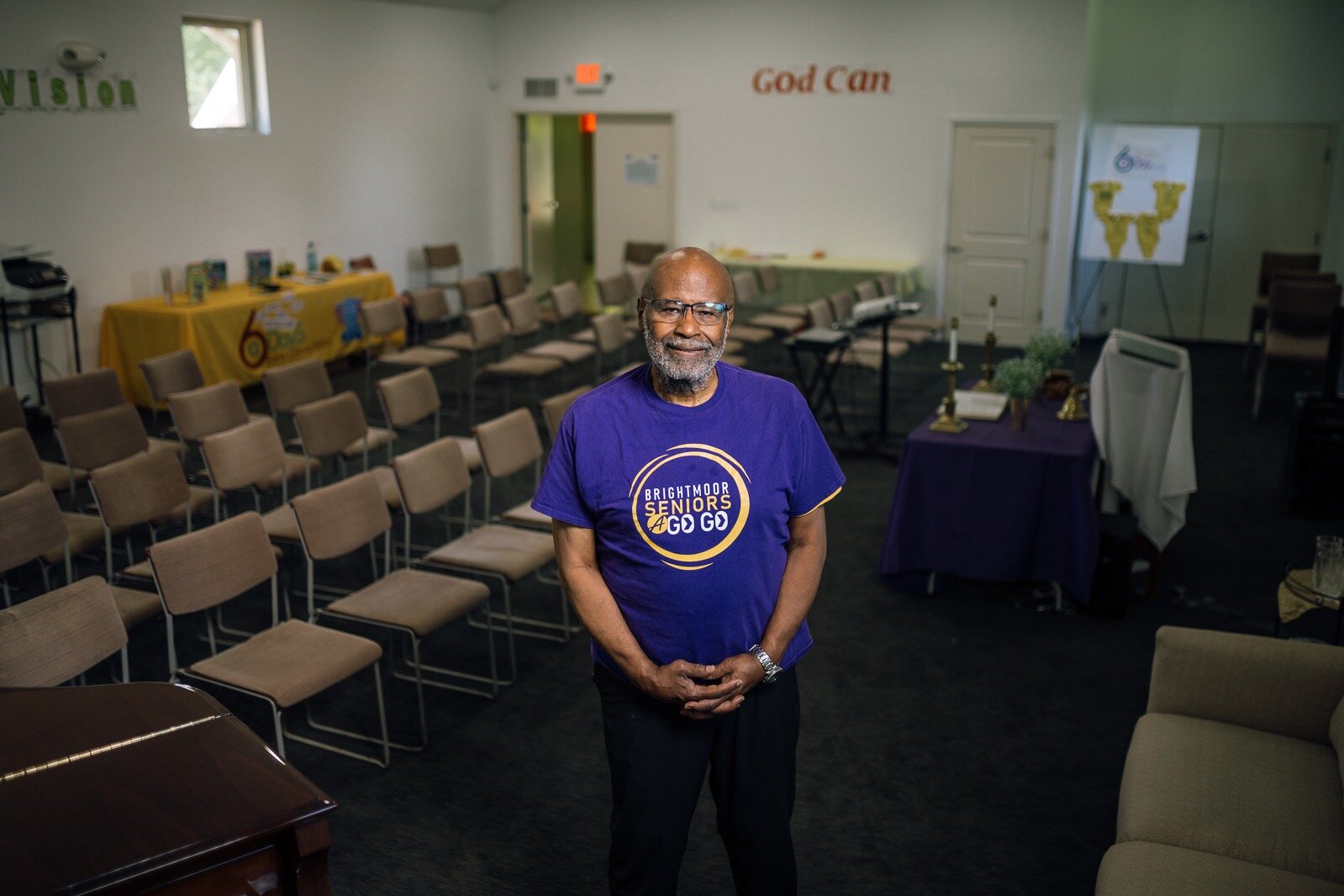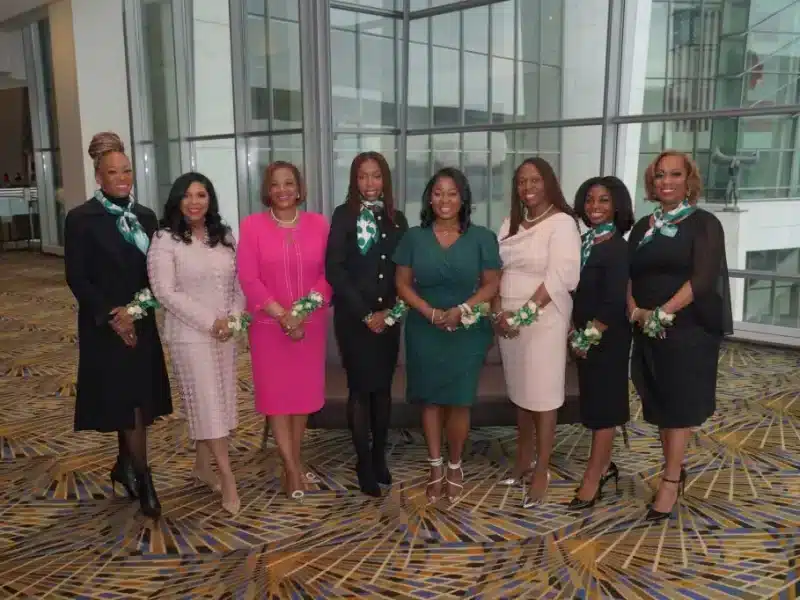Doors open, lights on at Dr. Maya Angelou Village
Amidst a shortage of affordable housing, a new project in Brightmoor welcomes its first residents.
Lights are coming on at the Dr. Maya Angelou Village in northwest Detroit as the first residents have moved into their new homes.
This 45-unit building on Burt Road and Grand River Ave. represents a partnership between Chicago-based developer Full Circle Communities and Alternatives for Girls, a Detroit nonprofit which has served at-risk girls and young women for 37 years.
“Moving into the space of permanent supportive housing and affordable housing is a capstone to our mission,” says Dr. Celia S. Thomas, chief operating officer of Alternatives for Girls. The organization envisions a continuum of services, beginning with street outreach and shelter beds offered out of its Southwest Detroit campus to more permanent options that provide a bridge toward independence.
“Having an apartment building allows us the chance to move from early interventions and prevention and help residents to stabilize in shelter in order to learn more about what they need to stabilize in a community,” says Thomas.
“Grateful” is how Israel (Izzy) Williams describes her feelings at moving into her first apartment at Dr. Maya Angelou Village with her two-year old son AttiQus.
“What makes it good for us is that it is close to my family. I grew up over here, so I am very used to this area. We feel safe in this building,” says Williams. “When we moved in, AttiQus was running around like he already knew it was home. It’s very welcoming. My neighbors are nice. There are a lot of kids in the building so we will be able to build friendships and have play dates.”
Although at-risk females and young families were the initial target population, funding from the U.S. Department of Housing and Urban Development (HUD) and Michigan State Housing Development Authority (MSHDA) prohibits discrimination for the one- and two-bedroom units, which are accordingly open to residents of all genders.
Twenty-three units are classified as supportive housing, with access to a case manager who meets regularly with the resident to work on planning and pursuing goals. Thomas states that case management combined with low rent will provide residents a chance to bolster their financial strength by improving employment or going back to school, which ultimately garners greater income.
Affordability is a key feature for Williams, who balances parenthood with work as a restaurant manager while planning to continue her education in culinary arts.
“Rent is based off my income. If I start making more money, rent will adjust; but my income can go up, even 100%, and they won’t say ‘you have to go.’ I have room to grow and still live here, so I like that part.”
Rev. Larry Simmons is a pastor and advocate in the Brightmoor community. He describes the need for housing in his neighborhood, which is designated by HUD as very low income: “The median income for a family of three in Brightmoor is $27,000. Households with earnings that low must constantly be on the grind, trying to put the ends together for the basic necessities of life. They are often afflicted with low, substandard housing.
“Dr. Maya Angelou Village demonstrates that you can have quality rental options where people can live in decent housing even if their income is not high.”
The building’s location at the northern edge of Brightmoor was a strategic choice, according to Thomas, who cites its proximity to bus transportation and a variety of job, educational, and community opportunities.
“The success of this project has a lot to do with how strong a community is and its ability to connect with new residents,” says Thomas. “Many neighbors will embrace young, low-income families who are interested in doing better for themselves. This partnership has many positives – churches want new parishioners, businesses want to hire.”
Simmons refers to Alternatives for Girls as good neighbors who have reached out to churches and organizations surrounding the facility. “They came in as partners and as neighbors. I think that they will be a tremendous asset. Even though everybody in the apartments may not originate in Brightmoor, once they’re here, they’re part of the community.”
And the community has been watching. Simmons reports that curiosity and excitement about the Dr. Maya Angelou Village have been a frequent topic at block clubs and neighborhood meetings as residents have seen the facility take shape.
Izzy Williams, once one of those observing from the outside, is relieved to now be on the inside of her new home. “I watched these apartments being built. For this being my first apartment, I am very grateful and very happy. This is a safe environment.”
Resilient Neighborhoods is a reporting and engagement series examining how Detroit residents and community development organizations work together to strengthen local neighborhoods. It’s made possible with funding from The Kresge Foundation.








